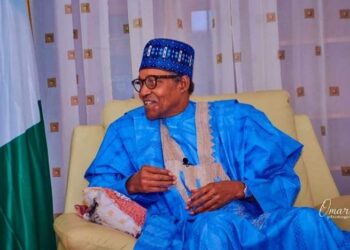FOMWAN’s crosscutting role in the Partnership for Advocacy in Child and Family Health (PACFaH) project is that of mobilizing constituencies of traditional and religious leaders, faith-based organizations and women groups to make governments account for health budgets, particularly in relation to nutrition; childhood killer diseases; family planning as well as routine immunization. ADAM ALQALI, reports
The Federation of Muslim Women Organizations of Nigeria (FOMWAN), the umbrella network of Muslim women organizations in Nigeria, with a consultative status with the United Nations, has taken its campaign for the increase in budgetary allocation to health at state and federal level in Nigeria, to the doorsteps of Christian and Muslim religious leaders in Kano state.
FOMWAN is a member of the Partnership for Advocacy in Child and Family Health (PACFaH), a coalition of leading Nigerian civil society organisations advocating for the increase in health budget; timely expenditure releases; and implementation of policies and guidelines in support of improved child and family health at national and state levels in Nigeria.
Thus, as parts of FOMWAN’s campaign to get the Kano state government increase its budgetary allocation to health, a FOMWAN-PACFaH advocacy team was recently in Kano state where they met with Christian and Muslim religious leaders, to enlist their support in their advocacy to the Kano state government, as respected members of the society.
PACFaH advocacy is targeted at making governments account for health budgets as well as policies and administrative guidelines in general, with a particular focus on four major issue areas: nutrition; childhood killer diseases; family planning and routine immunization.
Speaking during an advocacy visit to the chairman of the Kano state chapter of the Christian Association of Nigeria (CAN), Bishop Ransom Bello, the deputy national amirah of FOMWAN and director of the FOMWAN-PACFaH project, Farida Sada Yusuf, said they were targeting religious leaders so they could lend their voices to issues around child and family health, as highly respected members of the society.
“According to the 2013 National Democratic Health Survey, 55% of children in the Northwest region are stunted, which is the highest in the country while the annual live-birth figure for Kano state is 575,000 of which 101,000 die before their fifth birthday. And Kano State has the highest burden of childhood pneumonia in the northwest region of Nigeria,” says Farida Yusuf.
“Our specific request to key stakeholders in Kano state are for them to support the adoption of Amoxicillin DT, which is the first drug line for the management of childhood pneumonia in National Standard Treatment Guidelines and the National Essential Medicines List, and domesticate same in Kano state as well as encourage the public to use Zinc-LO-ORS Co-pack as the first line drug in the management of childhood pneumonia.”
In his response, Bishop Ransom Bello said although God gives life the responsibility of maintaining life has been entrusted in the hands of man pledging to advocate to members of the Christian community in Kano state and the Kano state government the importance of providing children quality healthcare services to the people, particularly women and children.
“We will motivate our people to get their children immunized; we will reach out to the Kano state government on the issue. We pray that this project succeeds in saving the lives of women and children. Our doors are open to any opportunities of partnership and support since family health is a very vital issue,” says Bishop Bello
Likewise, the FOMWAN-PACFaH advocacy team paid a similar visit to the chairman of the Council of Ulama in Kano state, Malam Ibrahim Khalil, to also enlist the council’s support in making governments account for health budgets, policies and administrative guidelines in general and particularly in relation to nutrition; childhood killer diseases; child spacing and routine immunization.
Malam Ibrahim Khalil said there was a consensus on the importance of health in both Christianity and Islam and blamed the failure of governments to implement budgets on the fact that the budgets were always based expectations, which makes them unrealistic in nature, as well as the lack of transparency and accountability in budgets implementation.
“People here don’t know the value of planning, child spacing is still not being accepted because of ignorance; Islam is not against child spacing, lack of planning is affecting development. Also, people don’t know the value of health as such religious leaders need to create awareness on the importance health and nutrition including charity feeding programs,” says the Islamic scholar.
He urged the government to accord priority attention to the three important issues of health; education and agriculture, fully involve traditional leaders in sensitization campaigns on health issues like routine immunization and called on private individuals and organizations to complement the efforts of governments in providing social services to the people.
In a related development, the Kano State FOMWAN-PACFaH health budget advocacy team, led by the Kano state amirah of FOMWAN, Saadatu Hashim, had a day earlier paid a similar advocacy visit on the Kano state commissioner for women affairs and social development, Yardada Maikano Bichi.
Speaking during the advocacy visit the amirah explained to the commissioner FOMWAN’s crosscutting role of mobilizing constituencies of traditional and religious leaders, faith-based organizations and women groups role in the PACFaH project, commending the Kano state government ‘s effort of increasing the state’s health budget in 2017 to 12.06% – from 9.74% in 2016.
“We strongly believe that with your support all the challenges militating against child and family health will be drastically reduced and be eliminated. We also request that you use your good office to help us gain access to the governor of Kano state to advocate for the timely release of the 2017 health budget in Kano state,” she told the commissioner.
In her response, the commissioner said the fact that Kano state was able to increase its budgetary allocation to health – from 9.74% to 12.06% – despite the current economic recession in Nigeria speaks volume of the state’s commitment to providing access to quality healthcare to its people adding that the state would not hesitate to increase its health budget as soon as the economic situation improves.
“I urge you to continue to consistently advocate to all relevant stakeholders until your mission is achieved because health is very critical to human development. Personally, I pledge to discuss the issue with my colleague the commissioner of health as well as table your request before the meeting of the State Executive Council,” says Bichi.



